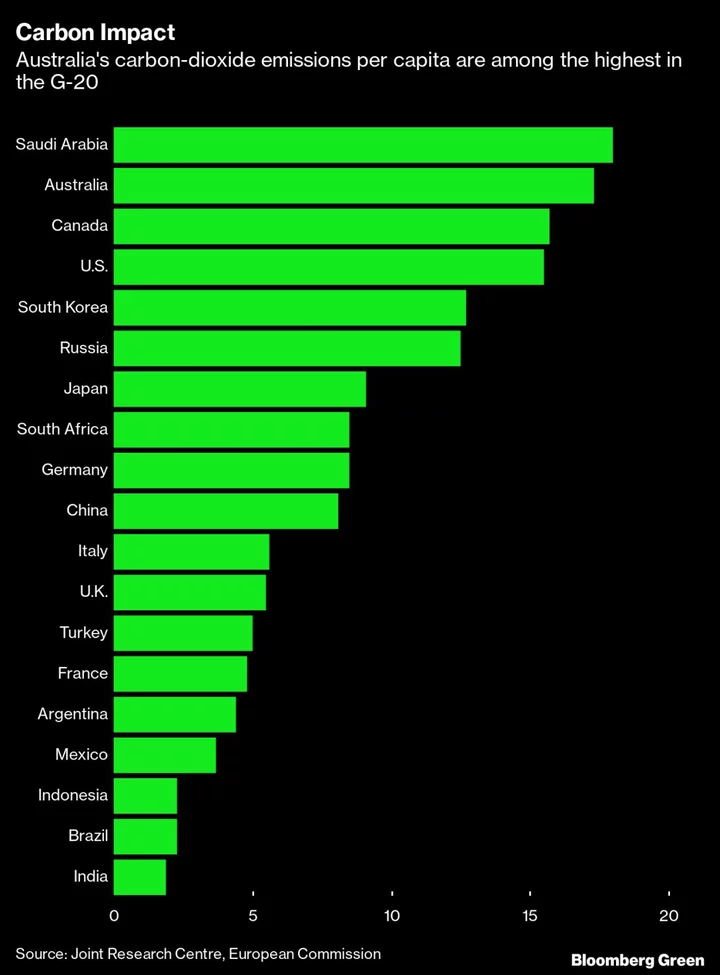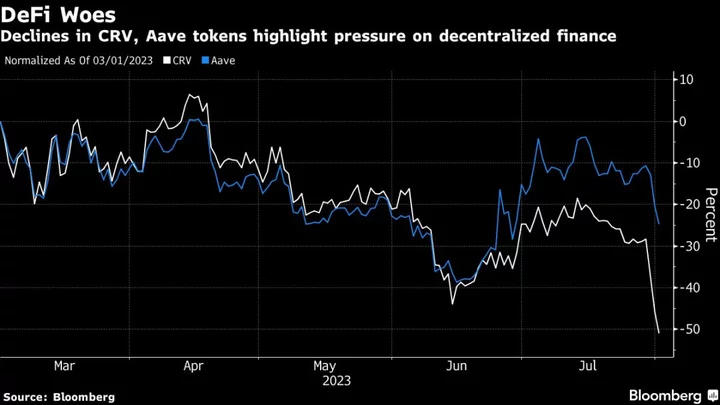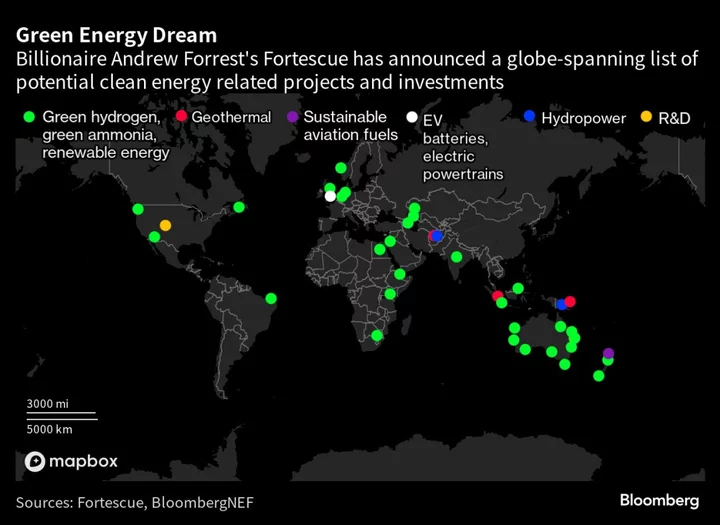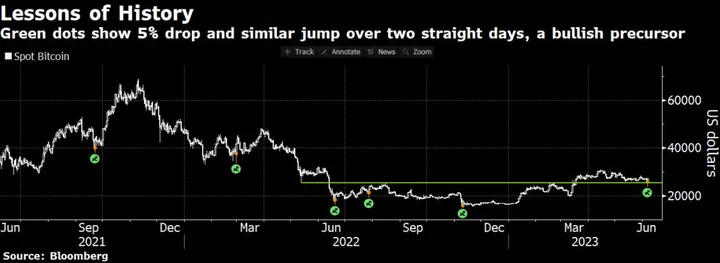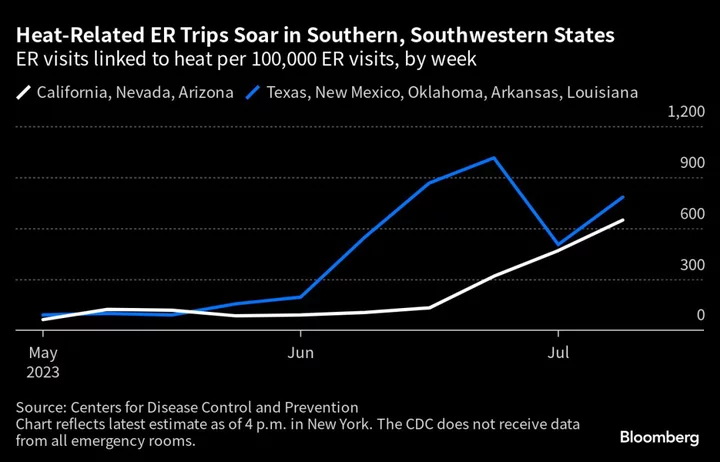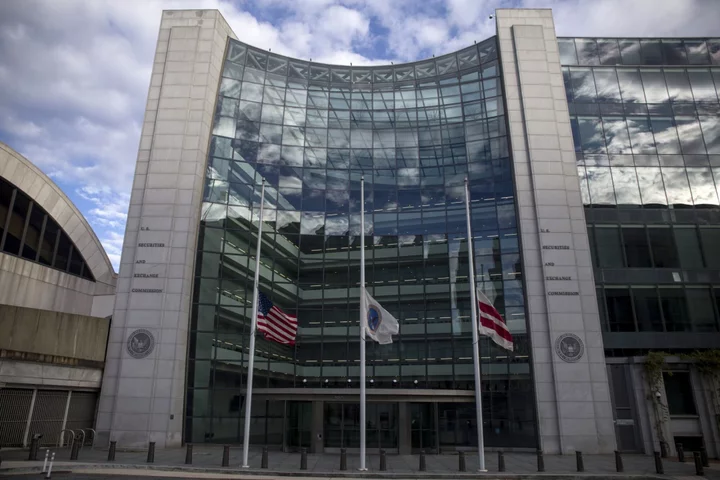Climate change threatens to exacerbate political instability, particularly in the Pacific region where rising temperatures pose an “existential national security risk” to small island nations, Australia’s energy minister said.
In his annual address to Parliament on the government’s efforts to tackle climate change, Chris Bowen said more Pacific countries will look to Australia for labor mobility and longer-term migration as sea levels keep rising.
“Climate change is an existential national security risk to our Pacific partners and presents unprecedented challenges for our region,” Bowen said in Canberra on Thursday. “It is likely to accentuate economic factors already fueling political instability.”
Prime Minister Anthony Albanese signed a historic accord with Tuvalu earlier this month that envisages larger levels of migration to Australia in return for Canberra having a greater say in the Pacific nation’s security affairs. The deal is among the first formal agreements that addresses the issue of climate refuges while also bolstering Australia’s efforts to counter China’s influence.
Since coming to power in May 2022, the center-left Labor government has set Australia’s first targets to cut carbon emissions — 43% off 2005 levels by 2030. However, the nation is one of the world’s largest fossil-fuel exporters and has been criticized for allowing new coal and gas projects despite the climate crisis.
While climate change is a risk to global stability over issues like water security, there are also mounting challenges at home, Bowen told Parliament.
Australia itself is a front-line climate nation as the world’s driest inhabited continent. It was scorched by wildfires over the summer of 2019-20 and the country’s heavily-populated east coast was repeatedly inundated with heavy rains and flooding in 2022.
Australia’s domestic crisis management agencies are being stretched while extreme weather events put increased strain on the country’s energy networks, Bowen said.
“This fragility could be used by hostile actors,” he added.

